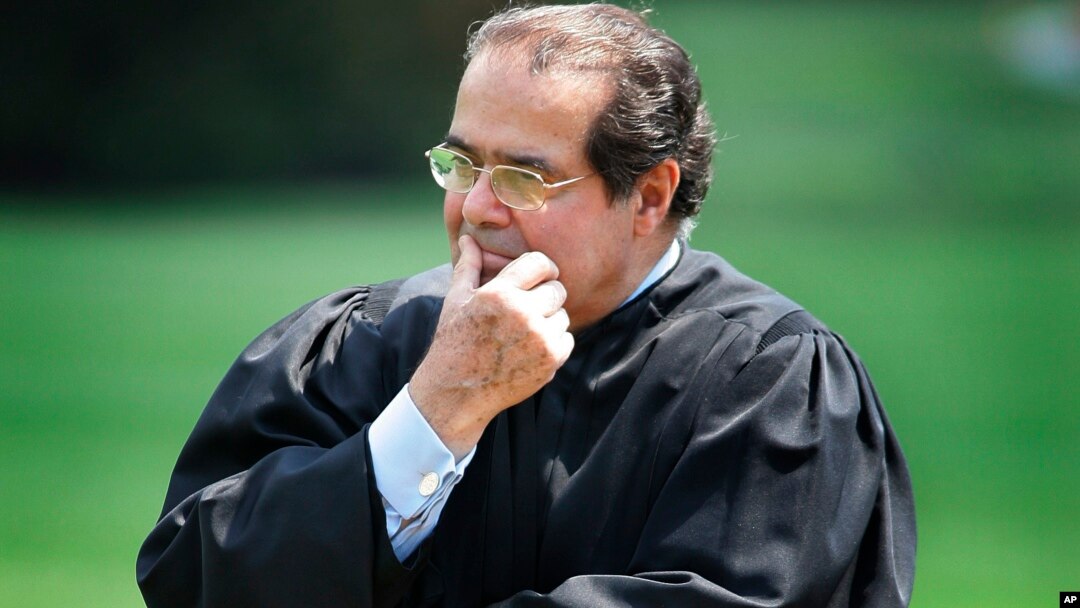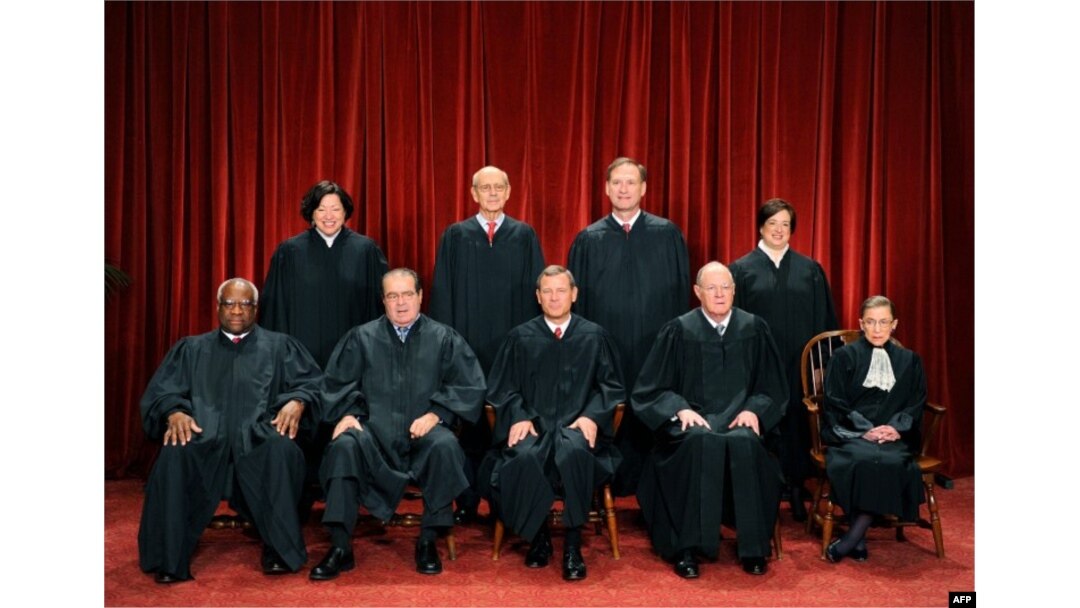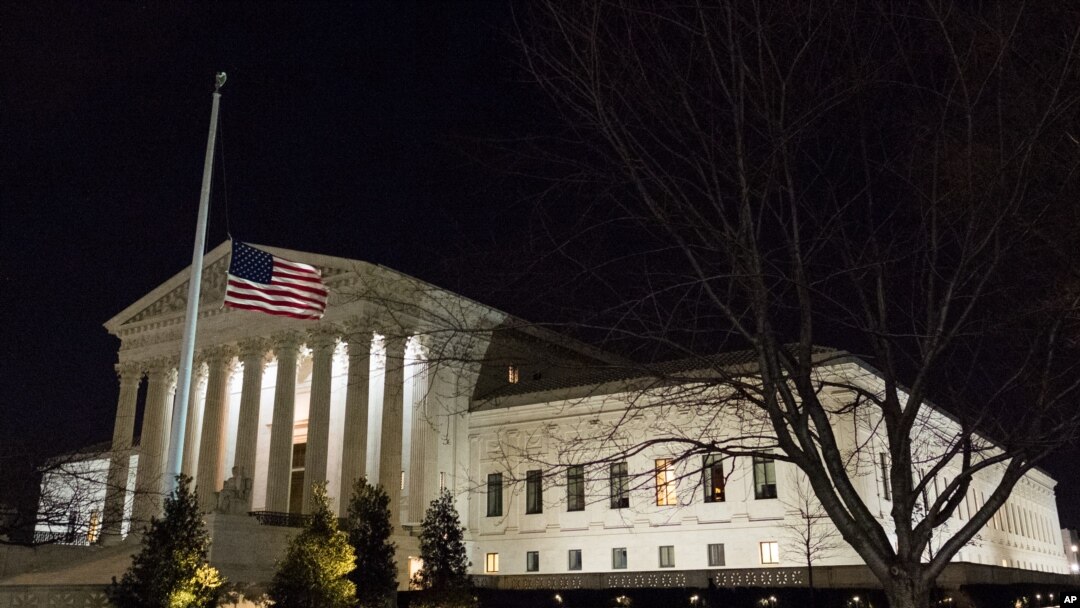With the death of Justice Antonin Scalia, the U.S. Supreme Court could be facing a divisive ideological split during its current term as it considers key cases involving abortion, immigration policy, religious liberty and affirmative action to assist racial minorities gain admittance to flagship universities.
Scalia, a stalwart conservative, was often one of five justices in the majority in contentious 5-to-4 rulings on the highest court, holding sway over the court's four liberals.

FILE - In this 2006 photo, Supreme Court Justice Antonin Scalia listens to President Bush speak during a ceremony at the White House.
His successor could tip the ideological balance on the court or keep it the same, depending on who ultimately fills the vacancy.

FILE - The Justices of the US Supreme Court sit for their official photograph on October 8, 2010 at the Supreme Court in Washington, DC, October 8, 2010.
Lengthy delay expected
In the meantime, however, with a lengthy delay expected in the Republican-controlled Senate over consideration of any nomination offered by Democratic President Barack Obama, the court is facing internal debate over some of the country's most difficult issues.
If the court ultimately splits on a 4-to-4 vote, lower court rulings affecting only parts of the country would remain in place, without setting a nationwide precedent.
In the next month, the court is set to hear arguments in a case on how far states may go in regulating abortions without violating a woman's constitutional right to ending a pregnancy. The legality of an abortion law in the southwestern state of Texas is at the center of the dispute.
Texas cases
The Texas law requires doctors who perform abortions to have admitting privileges at a nearby hospital and mandates that abortion clinics upgrade their facilities to hospital-like standards, a provision critics say is aimed at forcing the closure of the abortion providing centers but supporters say is necessary to ensure abortion clinics are medically safe.
Abortion rights supporters say the Texas law would force the closure of 32 of the 42 clinics in the state.
In another controversial case involving Texas, the court is set to revisit the extent to which the state's premier university, the University of Texas, can consider the race of its applicants in making admissions decisions. The case was brought by a white woman who was denied admission.
In still another Texas-based dispute, the court is considering whether Obama exceeded his authority in trying to shield more than four million illegal immigrants from deportation.
FILE - About 50 immigrants protested outside the Supreme Court, urging the justices to take up a case involving President Obama's executive order on immigration. (Carolyn Presutti/VOA)
Voting rights, public employee unions
In the religious liberty case, the justices are considering whether religiously affiliated organizations, such as universities, hospitals and charities, can be free of having to provide their employees with contraceptive coverage if they object because of their religious beliefs to providing women with birth control pills and other forms of contraception.
The Supreme Court also has on its docket other contentious cases involving voting rights, public employee unions and climate change. The court typically issues its major decisions by the end of June each year.
With the vacancy caused by Scalia's death, the court could simply hold off on some rulings until his seat on the court is filled and then hear arguments with all nine members available to make a ruling.


